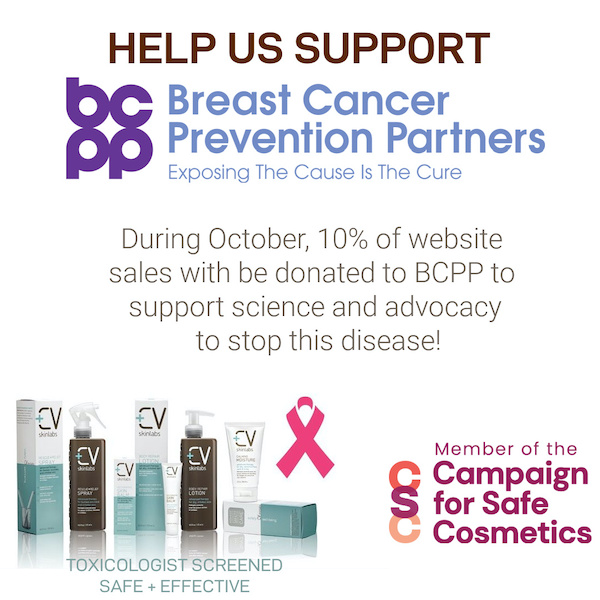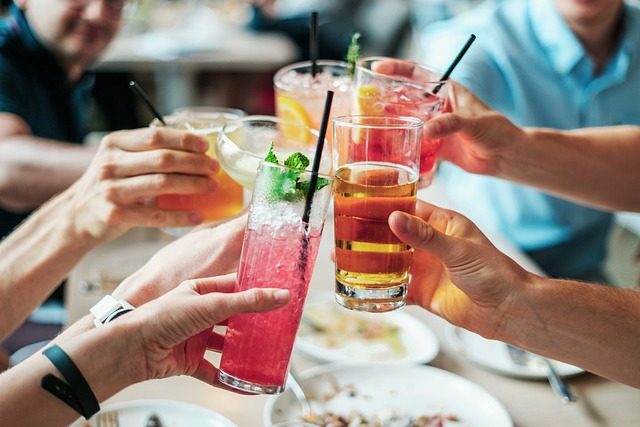Do you know what to do to reduce your risk of breast cancer?
October is Breast Cancer Awareness Month, so we wanted to take this opportunity to remind you of the daily habits that will help you stay healthy.
As far as we know, you can absolutely influence your future by the choices you make today.
Lifestyle choices affect your risk of breast cancer
Breast cancer is the second most common cause of cancer death in women, after lung cancer. Fortunately, breast cancer death rates have declined since 1989, with an overall decline of 43 percent until 2020.
On the other hand, the number of incidents has increased by 0.5 percent per year.
Lifestyle choices make a difference. According to the American Cancer Society (ACS), certain risk factors for breast cancer are related to personal behavior, such as diet and physical activity. In a 2020 study, researchers examined data from more than 17,000 women over a period of about nine years.
The results showed a twice the risk for women with an unfavorable lifestyle (three out of five unfavorable factors) versus women with a favorable lifestyle. Those with an unfavorable lifestyle also had a two times higher mortality risk.
The five lifestyle factors included in the results were:
- weight
- fysical activity
- alcohol consumption
- smoking
- hypertension or high blood pressure
These and other studies show us that we can reduce our risk of breast cancer by adopting certain habits in our lives and avoiding others. Several studies have also shown that following healthy lifestyle habits can reduce the recurrence of breast cancer (after you’ve had it) and reduce mortality from the disease.
5 habits that reduce the risk of breast cancer
Below are the most researched lifestyle habits shown in studies to help reduce the risk of breast cancer.
1. Move more
Exercise is so good for you in so many ways. One of these is reducing the risk of breast cancer. But we’re not just talking about a 30-60 minute daily workout. We are talking about general physical activity.
How much do you exercise during the day? The more the better. According to the National Institutes of Health (NIH) assessment of 73 studiesthere was an average risk reduction of 25 percent among physically active women compared to the last active women. The associations were strongest for ‘recreational activities’ – meaning any outdoor activity you do for relaxation and pleasure – and for moderate to vigorous exercise.
Scientists believe that when we are active, multiple processes occur in the body, involving sex hormones, insulin resistance, inflammation and more, that benefit us. Whatever causes the advantage, you can use it to your advantage. Try to get 2.5 to 5 hours of moderate physical activity per week, or 1-2 hours of vigorous activity per week.
In short: just get up and move more!
2. Maintain a healthy weight
Being overweight increases the risk of breast cancer, especially after menopause. In a Study from 2015Obesity posed the greatest risk, with a body mass index (BMI) of 35 or higher strongly associated with a risk of breast cancer. Obesity was also associated with more advanced disease and larger tumors.
The American Institute for Cancer Research (AIRC) estimates that one-third of breast cancers in the US could be prevented if women maintained a healthy weight throughout their lives, were active and did not drink alcohol.
The MD Anderson Cancer Center notes that after menopause, the risk of breast cancer increases by about 12 percent for every five-point increase on the BMI scale. Scientists think this is because body fat has an effect on hormones (potentially raising estrogen levels), and hormones have a big effect on cancer risk.
The good news is that losing weight can help at any age. Women who lose weight after the age of 50 and beyond, have a lower risk of breast cancer than women whose weight remains the same.
3. Skip the cocktails
According to breastcancer.orgDrinking alcoholic beverages – beer, wine and spirits – increases a woman’s risk of hormone receptor-positive breast cancer. This appears to be because alcohol can increase levels of estrogen and other hormones and can also damage DNA in cells.
Compared to women who don’t drink at all, women who drink three alcoholic drinks per week have a 15 percent higher risk of breast cancer. Estimates are that the risk of breast cancer increases another 10 percent for every additional drink women drink regularly.
A 2009 study showed that drinking even a few alcoholic drinks per week (3 to 4) increased the risk of breast cancer returning in women diagnosed with the disease at an early stage.
Your best choice? Avoid alcohol. If you like to drink occasionally, try to limit the number of servings you consume.
4. Ask your doctor about hormone supplements
Hormone supplements can be very useful for women, both to prevent unwanted pregnancies and to control menopausal symptoms.
However, there is some evidence that hormone therapies may increase the risk of breast cancer in certain situations. Some research suggestsst that women who were using or recently stopped using oral combined hormone contraceptives had a modest increase in the relative risk of breast cancer compared with women who had never taken the pill. The risk depended on the type of contraceptive used and the duration of use.
However, other studies showed conflicting results, showing no increased risk of breast cancer in current or former users of birth control pills.
Hormone replacement therapy (HRT), which can be an effective treatment for menopausal symptoms, may slightly increase the risk of breast cancer or breast cancer recurrence. The risks depend on the type of HRT you use, the dose you take, the age you start it and how long you take it for.
The truth is that scientists are still unsure of all the factors at play when it comes to hormone therapy and breast cancer. A study from the early 2000s seemed to show that HRT significantly increased the risk, but new research shows it’s more complex than that.
Today, medical guidelines say the benefits of HRT – including quality of life and protection of bone health – may outweigh the risks for some women. Talk to your doctor about your specific case.
5. Eat more fruits and vegetables
Studies on diet and breast cancer have shown mixed results, but we do have quality research on eating fruits and vegetables.
a meta-analysis For example, combining the results of fifteen studies showed that women who ate the most fruit had a slightly lower risk of breast cancer compared to women who ate the least.
a pooled analysis The data from 20 studies also showed that women who ate the most vegetables had a lower risk of estrogen receptor-negative breast cancer compared to women who ate the least.
Some research has also suggested that a healthy diet can help breast cancer survivors live longer. One focused on fruit juices and fruit and vegetable intake and found that women who ate the largest amounts of fruits and vegetables after being diagnosed with breast cancer tended to have a lower risk of death over the course of the study than those who ate the least amounts. Total vegetable intake seemed to be the driving factor. Fruit intake itself did not help with mortality.
Another study looked at carbohydrates. Researchers found that breast cancer survivors who followed higher glycemic index diets (those containing more carbohydrates) were at increased risk of dying from breast cancer compared to those who followed low glycemic index diets.
Other ways to potentially reduce the risk of breast cancer
In addition to the above lifestyle choices, the following can also contribute to a reduced risk of cancer:
Stop smoking
Smoking is bad for you in many ways. Studies have found that it is associated with a modest but significantly increased risk of breast cancer.
Breastfeeding
Studies have suggested that breastfeeding your children may slightly reduce the risk of breast cancer later in life. According to the National Institutes of Health, this can reduce the risk by 4.3 percent for every twelve months of breastfeeding.
![CV Skinlabs high standards[1]](https://cvskinlabs.com/wp-content/uploads/2023/09/CV-Skinlabs-high-standards1.jpg)
Reduce exposure to chemicals
Some studies have suggested that high exposure to environmental chemicals may increase the risk of breast cancer and possibly make the cancer more resistant to treatment. These environmental chemicals can be found in the air we breathe, the food we eat, the water we drink, and the products we use on our skin.
You can reduce your risk by being careful with chemicals in your life. Here are a few ways to do that:
- Buy organic products; they usually contain fewer pesticides (consult the website). Environmental Working Group shoppers provide information about pesticides in products)
- Always wash your products before preparing or eating them
- Avoid heating food in plastic containers; use glass or ceramic
- Choose personal care products from conscientious companies that don’t use hormone disrupting ingredients in their products, like CV Skinlabs!
- Check the Skin Deep Database to see how safe your products are
- Choose fragrance-free personal care and laundry products
- Use sunscreens with mineral-based filters, such as zinc oxide and titanium dioxide
- Avoid antibacterial hand soaps, hand sanitizers, and cleaning products that contain quaternary ammonium compounds
- Dust and vacuum your home regularly
- Throw away the air fresheners

CV Skinlabs supports breast cancer research
At CV Skinlabs, supporting breast cancer research and advocating for a reduction of this disease is close to our hearts. Our brand was born from the need to reduce the painful effects of cancer treatments on the skin. Safety and well-being are part of our DNA.
Our products are all toxicologically screened and are always free of potentially harmful ingredients, endocrine disruptors and irritants. We even excluded fragrances and essential oils, as some have little potential to mimic estrogen in the body.
Our customers can use our products with complete peace of mind knowing that they do not contain any ingredients known to potentially increase the risk of breast cancer.
How do you reduce the risk of breast cancer?
Featured image courtesy of Anna Tarazevich via Pexels.





